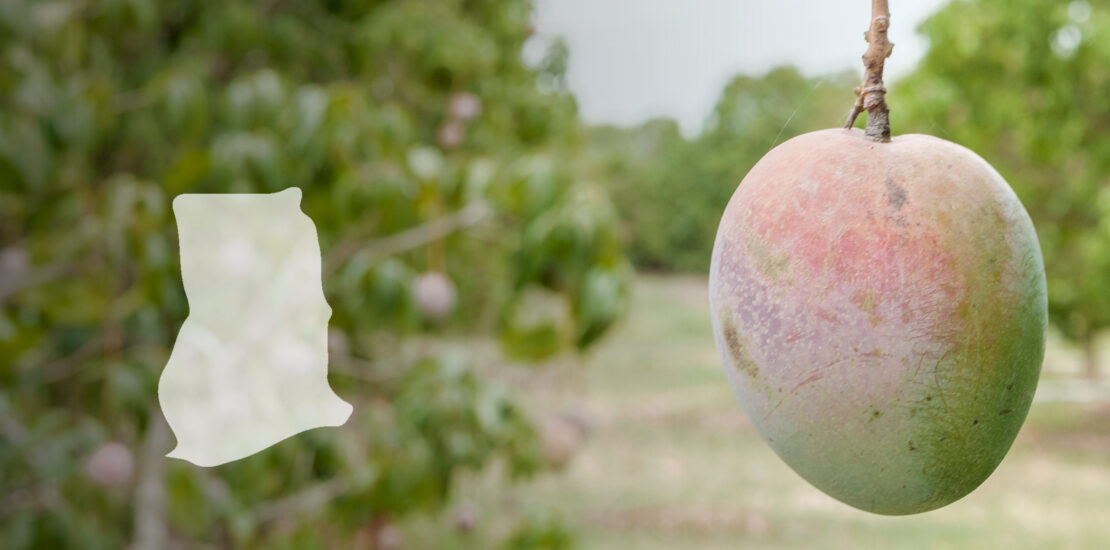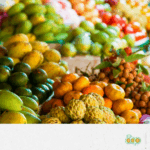Impacts of Covid-19 on horticultural SMEs in Ghana
- 24/09/2020
- Posted by: Sandra Borma
- Category: Ghana, News

COLEACP’s surveys in the early months of the pandemic aimed to gather first-hand information on the impact of Covid-19 on operators of horticultural businesses, and assess how support from COLEACP and other partners could best be redirected as a response. These were not intended to be systematic surveys – respondents were self-selecting, and the operators taking part varied greatly in size and operation. But the results provide an illuminating qualitative snapshot of the key impacts of Covid-19 to date, and have been used to inform COLEACP’s and partner organisations’ priorities going forward.
Key points:
- The main impacts have been on customer demand, with reduced supplies from producers, and on logistics, particularly air freight.
- Turnover has decreased 50% on average for the participating companies.
- While companies have lost 5 tonnes of product per month on average, the majority have found alternative markets (generally local markets).
- All respondents are experiencing liquidity problems and are unable to pay overheads or producers.
- Companies are relatively aware of government aid available to them, although few actually benefit from it at this stage.
The survey was open between 3 and 16 August. The 12 companies that responded were COLEACP members and partners, and members of Sea-freight Pineapple Exporters of Ghana (SPEG) and other professional organisations. Most of the respondents operate in several value chains simultaneously: mainly pineapple, followed by mango, processed fruit and chillies. Half operate on European markets, 40% on local markets, and one company exports to Morocco.
The main sectors affected were pineapples, chillies and sweet potatoes, with 100% of companies active in these sectors reporting an impact. In general, all sectors are affected, including processed products. Domestic as well as international markets have been impacted, with all respondents having some activity on local markets (including with local processing factories).
The clearest impact was due to the decrease in airfreight capacity (50% of companies), followed by reduced supply of products from producers (42%).
Over 70% of the companies had sold larger quantities on the local market, and 50% were still trying to identify potential new markets. One company has started to process its products, and one company has also started to produce compost with unsold produce.
50% of respondents said they had access to an online platform to sell their products (although not all found this useful).
Of the 12 enterprises that completed the survey, 11 mentioned a decrease in turnover, and one enterprise had not yet been able to estimate this impact. 42% of respondents saw turnover reduced by more than half, and one company estimated losses at over 80%.
Impact on turnover
Eight companies were able to quantify this impact and provided an estimate of their loss over the first half of 2020, which amounts to between €250 and more than €1 million.
Compared with forecasts, the impact was mainly felt in terms of ordering from current or potential customers (for more than 60% of respondents). Slightly fewer than half of the companies were not able to meet existing orders; one company saw no impact on orders; and one company saw an increase in orders.
In terms of volume sold, the impact is mainly negative. One-third of the companies experienced a decrease in customer order sof 25–50%, and 25% experienced a decrease in volume of 50–75%. One company experienced an increase in orders.
Impact on companies’ orders (volume)
Eight companies (out of the 10 that were negatively impacted) were able to estimate the average loss per month of volume not sold. This ranged from 5 kg to 36 tonnes of loss in marketed volume per month.
The main cashflow challenges faced by companies during the crisis are their difficulties in covering overheads (more than 70% of companies), followed by costs to cover inputs for new plantations (60% of companies) and producer payments (50% of companies).
On prices, however, for 50% of companies market prices were similar to the same period in 2019. Prices were higher than 2019 for a quarter of companies, and lower than 2019 for the remaining quarter.
33% of companies were aware of government assistance programmes (assistance with bills for utilities, loan extensions, deferred payment deadline for certain taxes), but only one company reported benefiting from government support.
Many horticultural companies employ casual workers on farms and in packhouses – daily wage-earners who are only employed when there is harvesting and packing activity. They are often the weakest in the value chain and the first to feel the impact of economic slowdown. 30% of the companies were unable to hire seasonal workers. However, 30% of respondents hired their seasonal workers as initially planned, and two businesses hired more casual workers than planned.
50% of the companies had kept all their permanent staff, even if they had to take measures such as reduced wages (33% of companies) or had to close their business for a week or more (41%).
Eight of the 12 respondents work with small-scale outgrowers. Six of the eight companies saw some impact on their relationships with outgrowers. 25% were unable to guarantee markets for outgrowers’ produce, and 25% could not pay their outgrowers.
Seven companies have played a corporate social responsibility role –distributing food and hand sanitisers; awareness-raising on the virus to casual workers, outgrowers or the local community.
The vast majority of respondents were applying virus containment measures in their workplaces as recommended by the World Health Organization (WHO): hand washing, maintaining social distance, etc. Temperature checking was an additional measure implemented by several companies. Measures have been implemented mostly within plantations/farms (over 90% of the enterprises in packhouses/processing units (60%) and by four out of the eight respondents working with producers.
The main difficulty reported was the financial cost of implementing Covid-19 safety measures (41% of companies). Finance is a major bottleneck for many companies’ operations due to increased costs for logistics, safety measures, protective clothing, etc. The majority of companies that responded prioritised financial support, or assistance with access to finance.
Other areas of support highlighted included:
- linking buyers to suppliers;
- support in accessing markets;
- information and training (on markets, on Good Agricultural Practices, on Covid-19 related procedures for farming operations);
- provision of inputs and other materials;
- support with freight/logistics.
Download the complete of survey results on the impact of Covid-19 on horticultural SMEs in Ghana: COVID19 – SURVEY _Ghana – 2020-





